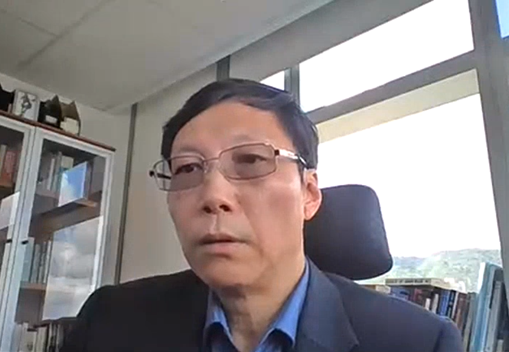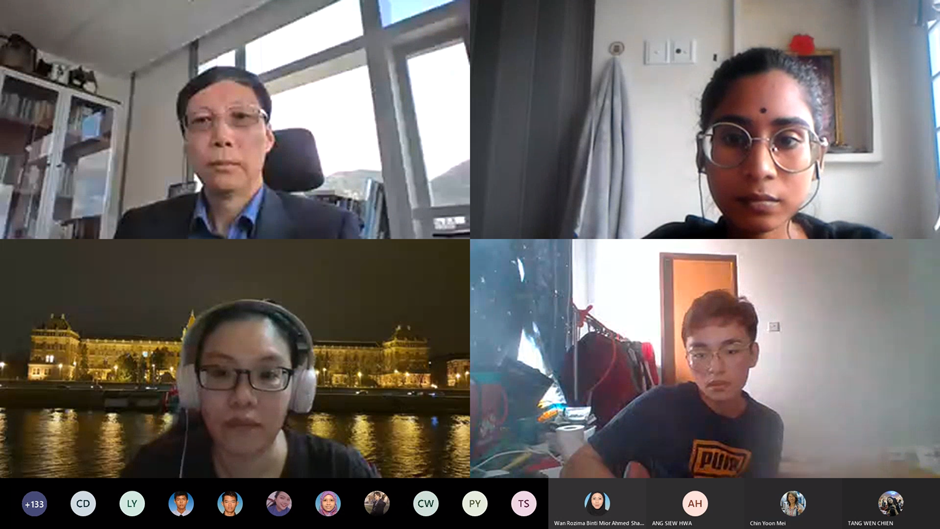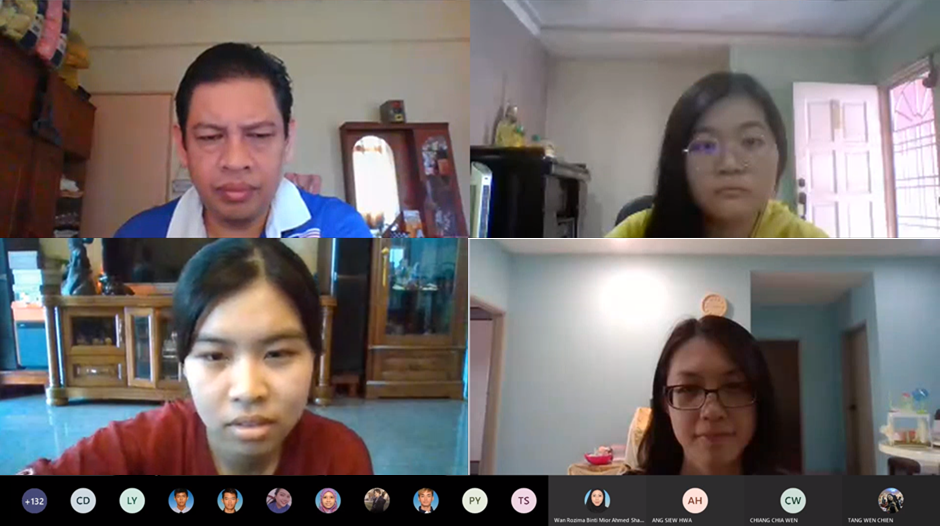
The frontiers of Network Financial Risk Management
The Centre for Accounting, Banking and Finance (CABF) and Department of Finance from the Faculty of Business and Finance (FBF) co-organised a talk titled “Frontiers of Network Financial Risk Management” on 16 July 2020, via Microsoft Teams. Present at the webinar were Department of Finance Head Dr Kuah Yoke Chin, staff and students.
Invited to deliver the talk was Endowed Chair Professor of Finance and Head of the Economics and Finance Department at the City University of Hong Kong Prof Ma Yue. He also sits on the editorial board for Asia-Pacific Journal of Accounting and Economics, an SSCI journal.
At the talk, Prof Ma first gave a brief introduction on the increasing mixture of offline and online operations faced by the financial industry. “For offline operation, the financial system has become more connected and contagious with systemic risks. The online operation, on the other hand, refers to the internet, social media, search engines, the process of shopping, payment, as well as lending via mobile devices,” he explained. He also mentioned that the mixture of online and offline operations has a significant impact on the operations of financial transactions, risk management and regulations. This brings an urgent need for applying innovative research on risk management as well as regulations for the economic and the financial network.
“IT skill has become an essential like English. It is a basic minimum requirement. It is not an advantage,” Prof Ma said. He also mentioned that the IT Network Financial Risk Management has become recent trends in top business schools in the United States, “Generally MBA programmes will equip students with soft skills. However, with the recent advent of fintech and AI (Artificial Intelligence), the MBA students must also learn some hard skills. The MBA programmes provided by the top business schools in the United States are equipping their students with hard skills, namely STEM (Science, Technology, Engineering and Mathematics), and more importantly with data science skills. These are recent trends.”
As the talk progressed, Prof Ma outlined the recent trends and perspectives on systemic risk transmission mechanisms, such as the major financial risks, integrated risk management, cognitive bias and risk transmission. For systemic risk transmission, the 2008 financial crisis has greatly impacted the financial networks of systemic risks. Since then, researches have become more prevalent in the applications of network models in studying network connections among the financial institutions, with research breakthroughs being made in this area.
Then, he also explained that major financial risks are categorised as risks relating to financial firms under the financial network and risks relating to financial products issued by internet financial firms. As the market rapidly expands, it would result in an increased number of participants and default events. He mentioned that the key areas for research include credit risk management and liquidity risk management. “This kind of research network framework and risk management is scarce,” he said.
Commercial banks generally face credit risk, market risk and operational risks. For integrated risk management, Prof Ma highlighted the challenges of the academic community in measuring financial risk at a higher dimension. In the study of cognitive biases on risk transmission, he mentioned that this area is still an under-researched issue in academia.
Finally, Prof Ma elaborated on the analytical frameworks for future research, such as the regulatory sandbox for experimental research and the structural model approach for theoretical research and empirical research.
As an experienced member of the editorial board for Asia-Pacific Journal of Accounting and Economics, Prof Ma shared his experience of publishing academic journals. “If you have IT-related topics, it is easier to publish in top tier journals as the editors are looking for big data, fintech and IT related topics. All the economic, financial theory, you can revisit, restudy and research to publish in top tier journals,” he said.
The enlightening and informative talk was followed by a Q&A session between the speaker and the participants.

Prof Ma explaining the increased mixture of offline and online operations faced by the financial industry

Prof Ma (top, most left) and participants taking a group photo

Participants taking a group photo after the talk
![]()
© 2020 UNIVERSITI TUNKU ABDUL RAHMAN DU012(A).
Wholly owned by UTAR Education Foundation Co. No. 578227-M LEGAL STATEMENT TERM OF USAGE PRIVACY NOTICE